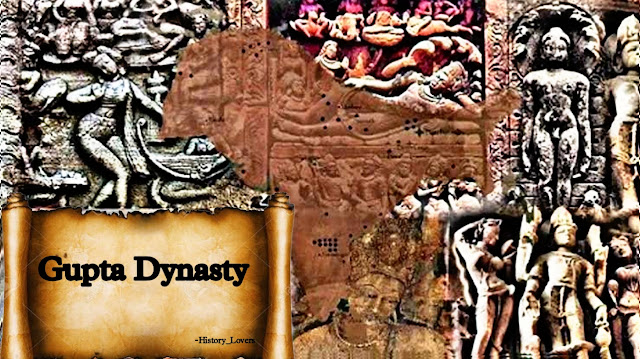THE DISAPPEARED RELIGION- 2 [ EGYPTIAN ]
Exploring the rich tapestry of Egyptian Mythology
 |
| Egyptian mythology |
Introduction:
We've already discussed about the disappeared religions like NORES, GREEK and and one of disappeared religion is EGYPT. Like the others Egypt also a great Mythology and mainly known for its tales, art, rituals and culture. Egyptian mythology stands as a mesmerizing tapestry woven with threads of gods, goddesses, and cosmic tales that have captivated hearts and minds for millennia. This ancient civilization, with its enigmatic pyramids and majestic temples, also gifted the world a pantheon of deities and a mythology that unravels the very essence of life and death. In this article, we explore the journey through the vast landscape of Egyptian mythology, revealing the gods, myths, and the profound significance they held in the lives of the ancient Egyptians.
The Pantheon of Gods:
At the heart of Egyptian mythology lies a pantheon as diverse and intricate as the tapestry of the Nile itself. The principal gods and goddesses governed various aspects of life, reflecting the Egyptians' deep connection to the natural world. Ra, the sun god, occupied a central position, symbolizing life, light, and warmth. His journey across the sky each day and descent into the underworld at night encapsulated the cyclical nature of life and death.
Isis, revered as the mother goddess, represented fertility, magic, and maternal devotion. Osiris, her husband, ruled the afterlife and symbolized resurrection and eternal life. Their myth, featuring betrayal, death, and rebirth, echoed the agricultural cycle along the Nile and offered hope for an afterlife.
Myths of Creation and Cosmic Order:
 |
| The cosmic gods |
The Egyptians believed in the concept of Ma'at, the cosmic order that maintained harmony and balance in the universe. The myth of creation, often associated with Atum or Amun-Ra, (The self created god) epicted the emergence of the world from the primordial waters. The sun god's act of self-creation and the subsequent creation of other deities underscored the cosmic order and the interconnectedness of all life. Although SUN is the Major god of Egyptian mythology.
The Ongoing Battle of Good and Evil:
 |
| Ongoing battle of gods and demons |
The eternal struggle between order and chaos manifested in the battles between gods and mythical beings. The story of Horus, the falcon-headed god, battling Set, the god of chaos, epitomized this cosmic conflict. Set's murder of Osiris and Horus's subsequent quest for justice reflected the perpetual struggle to maintain Ma'at and preserve cosmic harmony.
The Enigmatic Sphinx and Divine Beings:
 |
| Sphinx |
Egyptian mythology also introduced divine beings in animal forms, blending the boundaries between the human and the animal realm. The Sphinx, with its lion body and human head, guarded the pyramids and posed riddles that tested the worthiness of those seeking entry. Animals like the jackal-headed Anubis, associated with embalming and the afterlife, and the ibis-headed Thoth, god of wisdom and writing, embodied divine qualities in animalistic form.
Ceremonies and Rituals:
The beliefs in Egyptian mythology permeated every aspect of life, influencing ceremonies, rituals, and daily practices. The annual flooding of the Nile, a vital event for agricultural prosperity, became a symbol of Osiris's death and rebirth, celebrated through festivals and rituals. The construction of temples dedicated to specific gods served as focal points for religious ceremonies, emphasizing the Egyptians' devotion to their deities.
Legacy and Influence:
The enduring legacy of Egyptian mythology extends far beyond the ancient sands of the Nile. The myths have inspired countless works of art, literature, and film, perpetuating the allure of gods and goddesses such as Ra, Isis, and Anubis. The iconic imagery of sphinxes, pyramids, and hieroglyphs continues to captivate the modern imagination, testifying to the timelessness of Egypt's mythical narratives.
Conclusion:
In the shadows of the pyramids and the echoes of ancient rituals, Egyptian mythology stands as a testament to the profound connection between a civilization and its beliefs. The gods and goddesses, myths of creation, and cosmic struggles continue to weave their magic through the fabric of time, inviting us to unravel the mysteries of life, death, and the eternal dance of the cosmos. As we delve into the depths of Egyptian mythology, we discover not just a rich tapestry of stories but a glimpse into the timeless wisdom of a civilization that sought to understand the mysteries of existence. Ancient Egyptian civilization is one of the Most Advanced civilization in the world, we can understand that while watching Pyramids and Sphinx, their rituals and culture are wonderful marvels in this world. We'll explore more about Egyptian tales, civilizations on upcoming articles. We'll back with more interesting things that occurred on Earth and in our universe.
Thank you for reading. ❤


